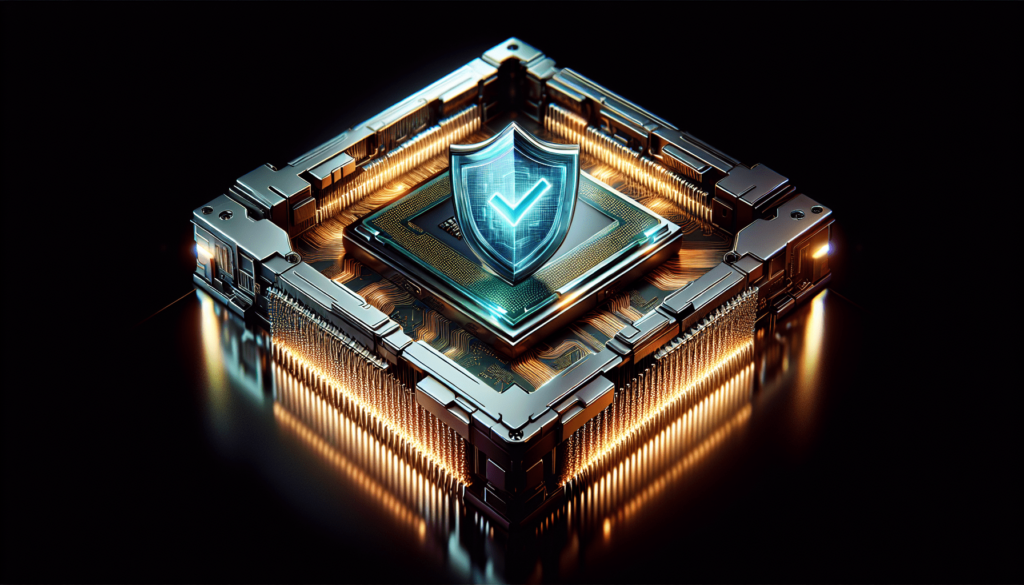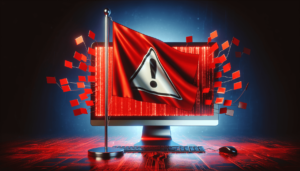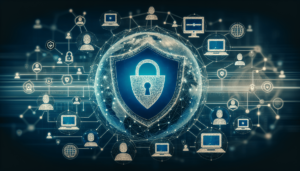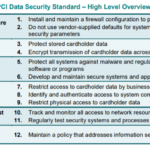Have you ever wondered how antivirus programs affect your computer’s performance when you’re engaging in high-demand activities like gaming or video editing? This article delves into the impact of antivirus programs on system performance in such scenarios, shedding light on whether they enhance or hinder your overall experience. It’s essential to understand whether these programs provide the necessary protection without compromising your computer’s speed and responsiveness. So, let’s explore the intriguing connection between antivirus software and high-demand applications.

Understanding Antivirus Programs
What is an antivirus program?
An antivirus program is software designed to detect, prevent, and remove malicious software (malware) from a computer system. It acts as a shield against various types of threats, such as viruses, worms, Trojans, ransomware, and spyware. Antivirus programs work by scanning files, email attachments, and websites for suspicious behavior or known malware patterns.
Different types of antivirus programs
There are several types of antivirus programs available in the market, each with its own unique features and functionalities. Some common types include:
-
Traditional Antivirus: These programs primarily focus on detecting and removing known malware threats. They usually rely on a signature-based detection method, where they compare files against an extensive database of known malware signatures.
-
Behavior-Based Antivirus: These programs monitor the behavior of files and processes running on a system to identify potentially malicious activities. They analyze patterns and actions to determine if a file is acting suspiciously, even if it doesn’t match known malware signatures.
-
Cloud-Based Antivirus: These programs leverage the power of cloud computing to improve detection rates and minimize system resource usage. They send files and data to a cloud server for analysis, allowing real-time protection against emerging threats.
Primary functions of antivirus programs
Antivirus programs serve several primary functions to protect your computer system:
-
Real-Time Scanning: Antivirus programs continuously monitor your system for any suspicious activities or incoming threats. They scan files, programs, and network traffic in real-time to identify and block malware.
-
Malware Detection and Removal: Antivirus programs scan files and processes on your system to detect known malware signatures or behavioral patterns. If a threat is detected, they isolate or remove it from your system.
-
System Optimization: While a primary focus of antivirus programs is on security, they often include additional features to optimize system performance. These may include disk cleaning, startup program management, and performance optimization tools.
Exploring High-demand Applications
Defining high-demand applications
High-demand applications, such as gaming or video editing software, are software programs that require significant system resources to run smoothly. These applications often have complex graphics, extensive calculations, and high data processing requirements. Due to their resource-intensive nature, they put a strain on the system’s CPU, RAM, and graphics card.
Role of high-demand applications in system performance
High-demand applications push computer hardware to its limits, utilizing the maximum capabilities of the system’s resources. They require a high level of processing power, memory, and graphics performance to deliver a seamless user experience. As a result, these applications can place heavy demands on the system, causing it to work harder and potentially impacting overall performance.
Examples of high-demand applications
Some popular examples of high-demand applications include:
-
Gaming: Modern video games have become increasingly complex, often featuring realistic graphics, immersive sound effects, and AI-driven gameplay elements. These games require powerful CPUs, high-performance graphics cards, and ample RAM to run smoothly.
-
Video Editing: Video editing software, like Adobe Premiere Pro or Final Cut Pro, involves manipulating large video files, applying effects, and rendering complex visual sequences. These tasks require a significant amount of processing power and memory, especially when working with high-resolution footage.
-
3D Modeling and Animation: Applications used for 3D modeling and animation, such as Autodesk Maya or Blender, demand substantial computational resources to render intricate 3D models, create realistic animations, and simulate complex physics interactions.
The Functioning of Antivirus Programs
Background Scanning
One of the core functionalities of antivirus programs is background scanning. While you use your computer, the antivirus software continuously scans files, programs, and incoming network traffic in the background. It keeps an eye out for any potential threats or suspicious activities, ensuring that your system remains protected without interrupting your workflow.
Investigating suspicious activity
Antivirus programs closely monitor the behavior of files and processes on your system. If they detect any suspicious activity, such as a file attempting to modify critical system files or a process accessing sensitive information, they alert you and investigate further. This proactive approach helps identify potential threats before they can cause significant harm.
Removing threats
When antivirus programs detect malware or other threats on your system, they take appropriate action to remove or quarantine the infected files. Depending on the severity of the threat, the antivirus program may automatically remove the threat or provide you with options to decide how to handle it. This quick response helps ensure the security and integrity of your system.
Impact of Antivirus Programs on System Performance
Interrupted performance
Antivirus programs can occasionally interrupt your system’s performance by scanning files or updating their virus databases. While these activities are essential for protecting your system, they may temporarily slow down other tasks you are performing. However, modern antivirus programs strive to minimize these interruptions by optimizing their scanning processes and running background tasks during idle periods.
Slowed down system speed
Antivirus programs utilize system resources to perform various tasks, including real-time scanning, behavioral analysis, and malware removal. These operations can consume a portion of your system’s processing power, potentially slowing down its overall speed. However, reputable antivirus programs are designed to have minimal impact on system performance and provide configurable settings to optimize resource usage.
High CPU usage
Antivirus programs often rely on the CPU to perform tasks like scanning files and analyzing behavior. During intensive scanning or when dealing with a high number of files, the antivirus program may utilize a significant portion of the CPU’s capacity. This can result in higher CPU usage, which may temporarily impact the responsiveness of other applications. However, many antivirus programs have features to control CPU usage, allowing you to prioritize system performance or customize scan schedules.
How Antivirus Programs Affect Gaming
Slowing down of game performance
Antivirus programs can impact gaming performance by utilizing system resources that would otherwise be available for the game. Real-time scanning and active background processes can compete for CPU cycles and memory bandwidth, resulting in reduced performance. This reduced performance may manifest as lower frame rates, longer loading times, or occasional stuttering during gameplay.
Impact on gaming experience
Antivirus programs can also affect the overall gaming experience beyond just performance. Pop-up notifications, resource-intensive background tasks, or false-positive detections may interrupt or distract you while gaming. These interruptions can break immersion, disrupt gameplay flow, and potentially frustrate the player.
Factors influencing the level of impact
The level of impact an antivirus program has on gaming can vary depending on several factors:
-
System Specifications: The overall impact will be influenced by the system’s hardware capabilities. A high-end gaming rig with ample CPU power and RAM may experience a more negligible impact compared to a lower-end system.
-
Antivirus Configuration: The antivirus program’s settings and configuration can play a significant role. Some antivirus programs offer dedicated gaming modes that minimize resource usage during gameplay. Configuring scan schedules or whitelisting gaming directories can also help reduce interruptions and improve performance.
-
Software Compatibility: The compatibility between the specific antivirus program and the gaming software being used can affect performance. Certain combinations may have conflicts or compatibility issues, leading to higher resource usage or instability.
Influence of Antivirus Programs on Video Editing Applications
Delayed rendering times
Video editing applications heavily rely on the CPU and GPU for rendering tasks. Antivirus programs running in the background can divert system resources, causing delays in rendering times. This can be especially noticeable when working with large video files, complex effects, or high-resolution footage.
Issues with real-time playback
Real-time playback is crucial for efficient video editing. Antivirus programs may introduce additional overhead that impacts the smoothness of real-time playback. This can result in dropped frames, choppy playback, and hindered editing precision, making it harder to make precise edits or evaluate the final result.
Difficulties with multitasking
Video editing often involves multitasking, such as running multiple applications simultaneously, working with several video clips, or coordinating various effects and transitions. The presence of antivirus programs can use system resources and affect multitasking capabilities. This can lead to slower response times, increased rendering times, and potential instabilities when attempting to handle multiple tasks simultaneously.
Choosing the Right Antivirus for Optimum Performance
Assessing system requirements
When selecting an antivirus program, it is essential to consider your system’s requirements and capabilities. High-demand applications like gaming or video editing may need antivirus programs that have minimal impact on system performance. Ensure that the antivirus software you choose can run smoothly on your system without significantly affecting high-performance applications.
Looking for gaming or video editing friendly features
Antivirus programs tailored for gaming and video editing often include specific features to address performance concerns. Look for features such as gaming mode, which reduces resource usage during gameplay, or video editing mode, designed to prioritize system resources for video editing tasks. These specialized modes can help minimize interruptions and improve overall performance when using high-demand applications.
Deciding on the level of protection needed
While performance is crucial, the primary role of an antivirus program is to provide robust protection against malware. Assess the potential risks your system may encounter and determine the level of protection you need. Consider factors such as web browsing habits, file sources, or the presence of sensitive data on your system. Strike a balance between performance and security to ensure optimum protection without compromising system performance.
Preventive Measures Against Negative Impact
Periodic system checks
Performing regular system checks, such as full system scans or targeted scans of critical directories, can help minimize interruptions during high-demand tasks. Schedule these checks during off-peak hours or when you are away from the computer, ensuring that they do not interfere with your work or entertainment activities.
Utilizing ‘Gaming Mode’ or similar features on antivirus
Many antivirus programs offer a dedicated gaming mode or similar features explicitly designed to reduce interruptions during gameplay. Enabling this mode can temporarily disable or minimize resource-intensive background tasks, allowing you to focus on your gaming sessions without significant performance impacts.
Optimizing Antivirus settings
Take advantage of the optimization settings available in your antivirus program. Adjust the scan schedules, configure exclusions for trusted gaming or video editing directories, or tweak resource usage parameters to ensure that the antivirus software operates in a way that minimizes impact on high-demand applications.
Impact Mitigation Techniques
Scheduling scans during off-peak hours
Antivirus programs often allow you to schedule scans for specific times. By setting up scans during off-peak hours, such as late at night or when you are away from your computer, you can minimize performance impacts during your regular usage hours. This ensures that system resources are primarily dedicated to high-demand applications when you need them the most.
Keeping antivirus software up-to-date
Regularly updating your antivirus software ensures that you have the latest protection against emerging threats and vulnerabilities. Antivirus updates often include performance improvements and optimizations, which can help mitigate any negative impacts on system performance that may have existed in previous versions.
Investing in RAM or better hardware
Upgrading your system’s hardware, particularly the amount of RAM (random-access memory), can have a significant impact on overall performance. Increasing the available system memory allows your computer to handle more simultaneous tasks efficiently. This can help mitigate any performance issues caused by antivirus programs’ resource usage and maintain smooth operation during high-demand applications.
Testing and Evaluation of System Performance
Regular performance tests
Periodically conducting performance tests can help assess the impact of antivirus programs and other software on your system’s overall performance. Benchmark your system before and after installing an antivirus program to evaluate any noticeable differences. This can help you determine which antivirus program and configuration provide the best balance of performance and security for your specific needs.
Evaluating compatibility of antivirus with applications
When introducing a new antivirus program, it is essential to evaluate its compatibility with high-demand applications like gaming or video editing software. Test the antivirus program with your preferred applications and observe if any performance issues or compatibility conflicts arise. This evaluation ensures that your chosen antivirus program does not hinder the smooth operation of your critical applications.
Benchmarking system speed before and after antivirus installation
To assess the impact of an antivirus program on system speed, conduct benchmark tests before and after installing the antivirus software. Compare metrics such as boot time, file transfer speed, or application launch times to determine if there are noticeable differences. This data can guide you in selecting an antivirus program that has minimal impact on system performance.
In conclusion, antivirus programs play a vital role in protecting computer systems from various threats, but they can have an impact on system performance, particularly in high-demand applications like gaming or video editing. By understanding the functions and features of antivirus programs, users can choose the right antivirus software that strikes a balance between strong protection and minimal impact on system performance. Additionally, implementing preventive measures, utilizing optimization settings, and periodically evaluating system performance can help mitigate any negative impacts and ensure an optimal user experience when using high-demand applications.







